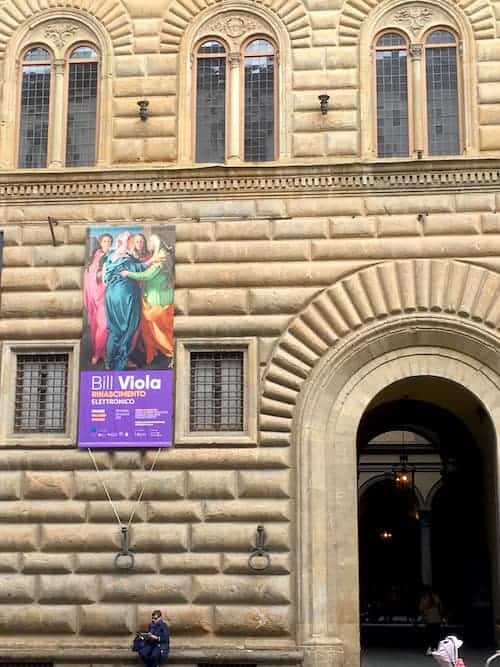My bags are always packed!
To go from here to there is to indulge in a blend of aesthetic schizophrenia, wanderlust, and bad faith. Insisting that I love exactly where I live, I still climb onto a plane roughly once a year to become whatever the next large foreign city can make of me. Without giving up what I have, I crave what can only be gained sitting at an exotic (df. of foreign origin) table.
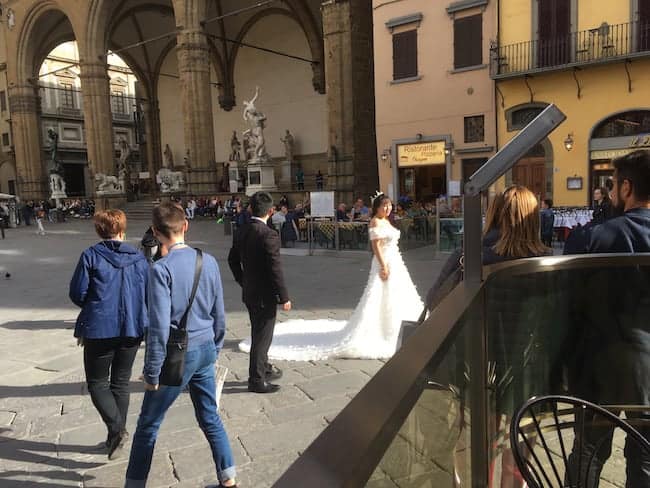 The Other Place vs Home. Each has exactly what the other lacks. The foreign city has architecture, history, and the cultural depth that only a critical mass of people, talent, and creative pressure can create. [It might also offer the spectacle of Korean newlyweds posing for nuptial photos with the Uffizi in the background.]
The Other Place vs Home. Each has exactly what the other lacks. The foreign city has architecture, history, and the cultural depth that only a critical mass of people, talent, and creative pressure can create. [It might also offer the spectacle of Korean newlyweds posing for nuptial photos with the Uffizi in the background.]
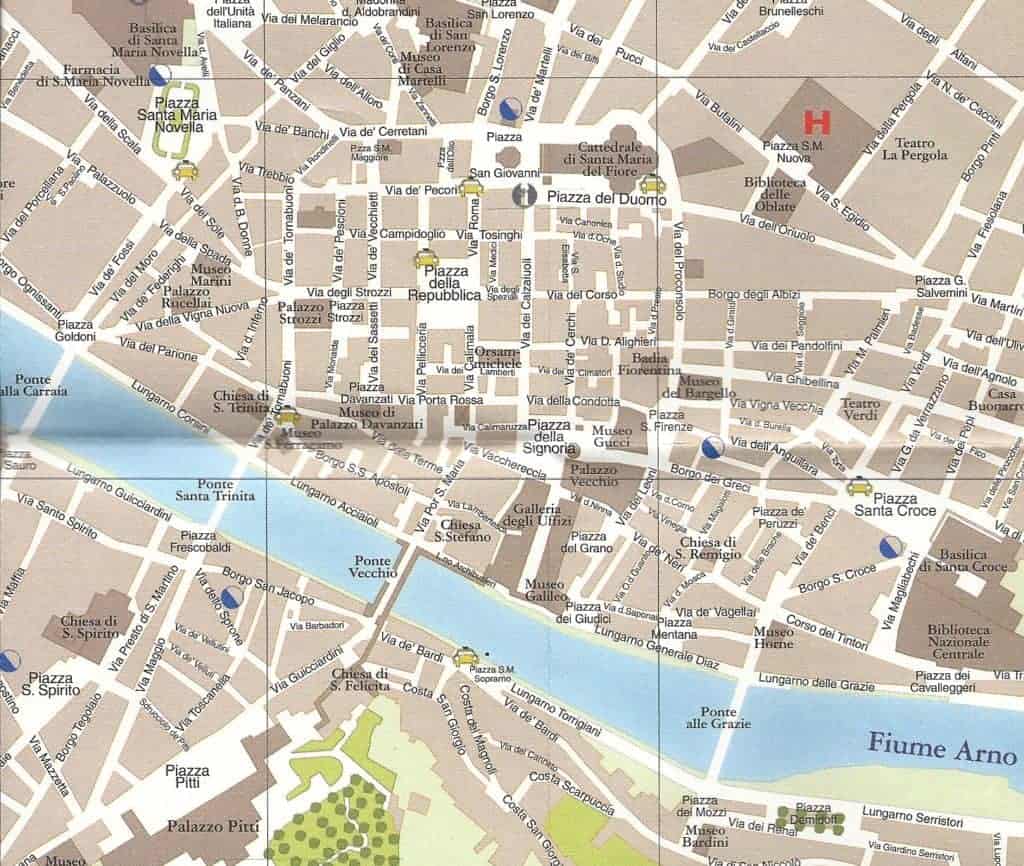    The small seaside town has coziness, hominess, familiarity. Its smaller size allows for intimacy, a sense of geographical mastery that comes with manageable scale. And it is home, a place one has lived in for years. It contains friends, lovers, colleagues—all those whose ideas and eccentricities help construct your own life.
   The small seaside town has coziness, hominess, familiarity. Its smaller size allows for intimacy, a sense of geographical mastery that comes with manageable scale. And it is home, a place one has lived in for years. It contains friends, lovers, colleagues—all those whose ideas and eccentricities help construct your own life.
Somewhere in the exact middle of these two attractive places the wanderer is suspended, not wanting to upset that balance, not wanting to have to choose.
I travel partly in order to see my home from a clearer vantage point, and nothing clarifies like distance (Antonioni knew that. So did Hemingway, and Durrell.) But also to feast and fill up upon the riches of the other—another time, another cultural sensibility, another way of moving, talking, and listening.
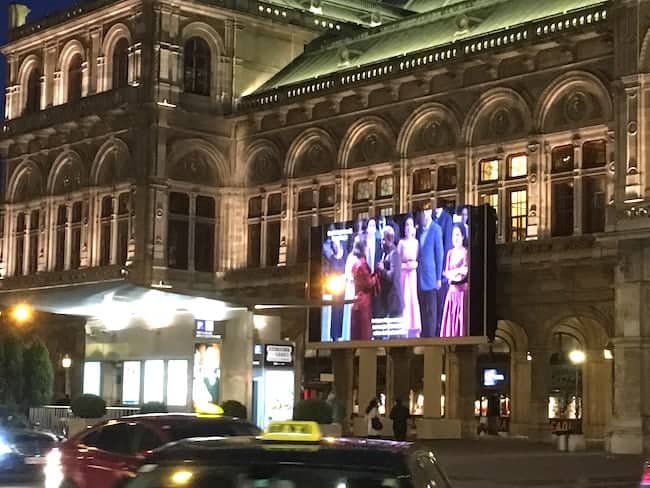 The smell of frankincense that fills the high altar of a cathedral on Sunday mornings speaks to my subconscious DNA. Was I a priest in a past life? The sound of church bells, counting out the hours, calling people to prayer, announcing this or another civic event, is part of the atmospheric soundtrack of European cities. A soundtrack missing from seaside California.
The smell of frankincense that fills the high altar of a cathedral on Sunday mornings speaks to my subconscious DNA. Was I a priest in a past life? The sound of church bells, counting out the hours, calling people to prayer, announcing this or another civic event, is part of the atmospheric soundtrack of European cities. A soundtrack missing from seaside California.
Admiring the bravura of men’s fashion in Italy I am forced to grasp the casual attire of coastal California. I see no baseball caps in Vienna, and I instantly understand the climate, the sun, the outdoor lifestyle that produces our dress code. It’s harder to see when you are in the midst, easy to spot via the extreme contrast of a metropolitan European city founded thousands of years ago by Celts.
I discovered BBC when I was in Paris several decades ago. Even though I loved French TV, the mesmerizing commercials, and pungently-dramatic soap operas, I wanted to hear some of my native language. That’s when I realized that American TV carried on as if there were no weather issues in Africa. No one mentioned incidents in the Sudan, or Myanmar. Chinese business deals weren’t given a second of air time. Bulgaria didn’t exist. The world into which I had traveled was not only larger, but my own country and its media prejudices seemed provincial by comparison.
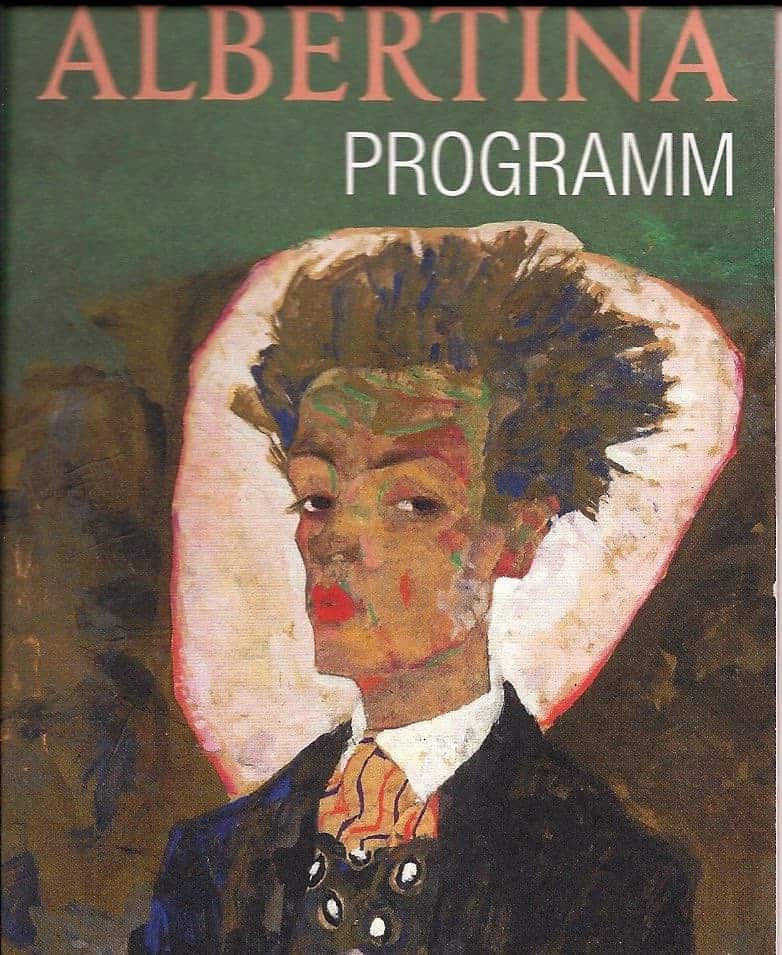 Without question we see ourselves and our cultural assumptions more clearly from afar. Travel removes me from work. I leave my laptop at home. I am frugal with my emails. Here and now details tend to define each day. I visit a museum in Florence and find it filled with engaged high school groups. I visit a Monet show in San Francisco and find it filled with white-haired nostalgics. The youthful energy and passion for the arts in Europe is both encouraging (I envy the Europeans) and sad (I am brusquely reminded of the inattention to art of the past by student-aged Americans). Yes, opera is expensive, but the queue for cheap standing room is a block-long in Vienna. All young people. Outside the US, museum tickets are inexpensive and everyone seems to take advantage of the sensory feast and stimulus to the imagination provided by innovatively-curated exhibitions. And no, I don’t mean simply parading out the content of a wealthy woman’s closet and calling it an art exhibition.
Without question we see ourselves and our cultural assumptions more clearly from afar. Travel removes me from work. I leave my laptop at home. I am frugal with my emails. Here and now details tend to define each day. I visit a museum in Florence and find it filled with engaged high school groups. I visit a Monet show in San Francisco and find it filled with white-haired nostalgics. The youthful energy and passion for the arts in Europe is both encouraging (I envy the Europeans) and sad (I am brusquely reminded of the inattention to art of the past by student-aged Americans). Yes, opera is expensive, but the queue for cheap standing room is a block-long in Vienna. All young people. Outside the US, museum tickets are inexpensive and everyone seems to take advantage of the sensory feast and stimulus to the imagination provided by innovatively-curated exhibitions. And no, I don’t mean simply parading out the content of a wealthy woman’s closet and calling it an art exhibition.
Does travel expand our consciousness? Does the Pope suffer fools?

